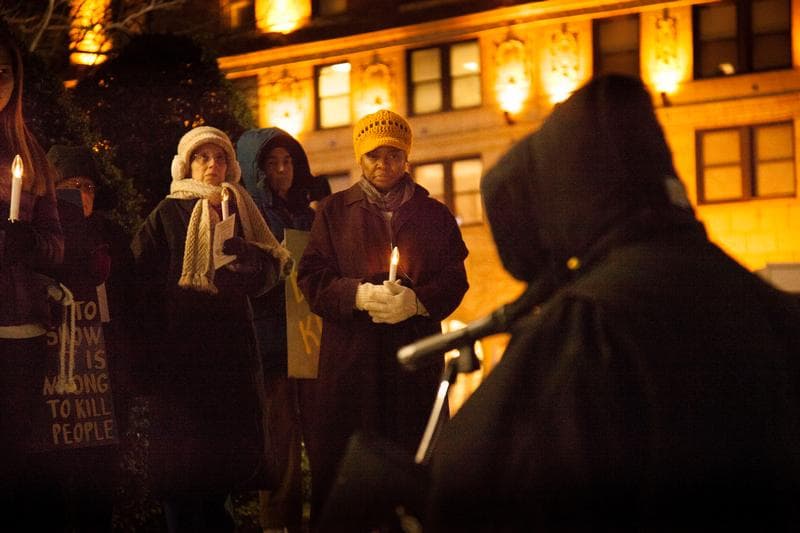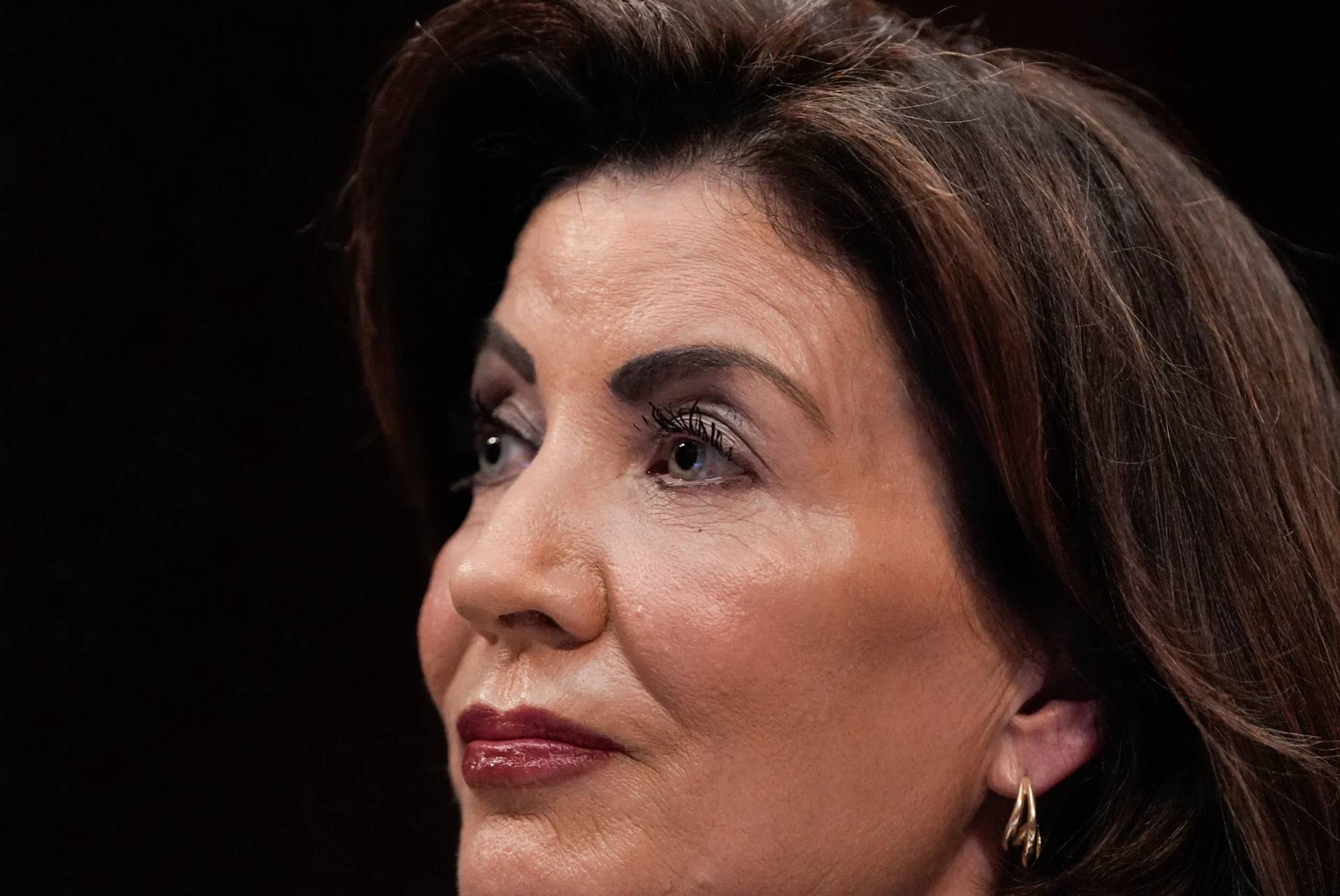[Editor’s Note: Dr. Jeffrey P. Bishop, M.D., Ph.D. holds the Tenet Endowed Chair in Health Care Ethics at St. Louis University. Bishop is also professor of philosophy, professor of health care ethics and professor of theology. Bishop has been a critic of proposed changes to the Jesuit university’s core curriculum, saying it will water down the Catholic identity of the Saint Louis University. He spoke to Charles Camosy about the issue.]
Camosy: You wrote a very provocative op-ed in the St. Louis Post-Dispatch criticizing proposed changes to the St. Louis University (SLU) core curriculum. Can you give us the short version on what is likely to happen to it?
Bishop: In order to answer this question, I have to give some background. The version of the core that was sent to the faculty on Jan. 31 was the final version. The University Undergraduate Core Committee (UUCC) is made up of voting members from all SLU’s colleges and schools that teach undergraduate courses, including seven members from the humanities disciplines. Yet, not a single representative from theology or philosophy was on the committee. There was also initially no Jesuit representation. So, a Jesuit brother with an appointment in philosophy was added as a non-voting consultant.
An early version of the core was leaked last September, and the idea was to have no department own any required courses. However, two departments did own courses: English Composition and Oral Communication. No required philosophy or theology courses. The president, or someone high up in the administration intervened. With only two days before the first rollout of the proposed core for commentary by the university community, the UUCC had to add two courses, one called “Ultimate Questions” and the other “Moral Reasoning,” one of which had to be fulfilled by a theology course. Since the latter course could also be fulfilled by a course offered through the Center for Health Care Ethics, it would have been possible to graduate SLU, a Jesuit university, without a single philosophy course.
The humanities faculty rallied and insisted that philosophy be added as a requirement. We worked with the UUCC to devise ways to trim 3-6 credits so that a philosophy course could be added while keeping the core capped at 35 credits. The UUCC then proceeded to adopt some of the suggested strategies to shave 3 credits to get the core down to 32 credits, and dropped the “Moral Reasoning” course to replace it with a required philosophy course.
We tried to intervene again. An ethicist from philosophy, one from theology, and myself (I have appointments in health care ethics, theology, and philosophy) proposed that we take one of the attribution requirements, which called for reflection on “Dignity, Justice, and Society” and created a required course for every student that would be called “Moral Reflection: Dignity, Justice, and Society.” Thus we would have an ethics requirement. However, the UUCC, rather than adopting this recommended course requirement devised by three collaborating departments, simply changed the name of the attribution to “Dignity, Ethics, and a Just Society.”
The problem is that, pedagogically, ethics is not at the center of the attribution. Virtually any course could meet it as long as there is some element of it that sounds vaguely like it is about treating people nicely. This problem pervades ethics education, which is often not recognized as a professional area of pedagogy. Everyone thinks they are ethical. By analogy, consider that I write in English and I speak publicly every day. So, I must be able to teach English composition and oral communication. Our pleas have fallen on deaf ears. The UUCC has effectively said, well, we teach dignity, ethics, and justice everywhere, so no need for a required ethics course. I have seen many medical and other professional schools that make this argument to justify gutting ethics from their curricula. Some medical schools offer merely a few hours of instruction in “professionalism” over a four-year curriculum.
Given this history, we are not likely to get the UUCC to change their minds. We have no recourse but to try to vote it down. Each college or school’s faculty assembly will have to pass it by simple majority. If any one school does not pass it, it fails for the whole university. We currently have an Interim Provost and several Interim Deans. Given that so much time and energy have been put into this endeavor, it is likely that the Interim Provost will lean on the Interim Deans to get their assemblies to pass it or, if it fails, could simply promulgate it by fiat.
Can you say more about your critique?
My central critique, as outlined above, focuses on ethics. However, this Core is far from perfect when looked at more broadly. It is full of edu-speak, including Ignatian edu-speak. Yet, there is nothing essential about this core that is authentically Catholic or Jesuit. Of course, the UUCC will say there is, but a couple of SLU’s Jesuits are not happy about it. Upper administrators will still use the word “Jesuit,” but that word and other Jesuit-sounding words and phrases now mean something else; in the recent past, SLU used the Jesuit term “magis” to justify extensive budget cuts: Everyone should do more with less resources.
And there are more problems. There is not a single English Literature class. There is no Foreign Language requirement. The legacy of great SLU Jesuits such as Walter Ong and John Kavanaugh are being forgotten and left behind in the name of chasing higher-ed fads that are supposed to increase enrollments. But, as I point out in my op-ed, why would anyone want to pay for SLU’s private university tuition for a watered-down Catholic Jesuit education that doesn’t differ in essence from what’s offered at local state universities. Combine all this with the fact that the President and Provost announced that they are putting SLU’s research dollars into science and technology, and we are trying to become the Science and Technology Catholic university, which will be very light on the Catholic dimension. We are becoming a caricature of the two cultures paradigm of C.P. Snow, with one culture (the technoscientific culture) incapable of understanding the other (the humanities).
So here we are playing directly into the uncritical presentism that permeates technoscientific political economy. To me, that is the biggest problem. You would think that Catholic universities would be poised to rejuvenate the humanities, and here we are selling out to technoscientific political economy in the name of expediency and the wrong sort of prestige.
What would you say to students and parents who argue that, if they are going to take on the kind of debt required to attend a private university, they need to be focused more on the courses they want to take, getting internships, and making a high salary after graduation?
Again, technoscientific political economy rules the day. It used to be that Catholics believed theology was the queen of the sciences. What that means is that technology is good, but it must be rightly ordered to the Good. Politics is good, but only if rightly ordered to the common good defined in Catholic Social Teaching. Economy is good, money is good, but only insofar as it permits us to have the space to order our lives.
Theology is about everything because it was supposed to show us how various instrumental goods were to be ordered to the summum bonum. Philosophy was the underworker in this divine endeavor, because it helped us to clear out the rubble, but also Literature, which could show us the failings of lives not properly ordered or inspire us to listen to the better angels of our nature. History gave us insight into things we used to hold as eternally true and beautiful and good, and might give us insight to read the signs of our own time.
But today, technoscientific political economy is the queen of the sciences, and all other disciplines — theology, philosophy, English, history, you name it — are meant to support it with courses in critical thinking, good writing skills, and whiggish/progressivist histories that keep telling us the best is yet to come.
So, when a Catholic university moves in that direction, it sells its birthright for a mess of porridge! See this article for the way MacIntyre tells this story. However, if Catholic universities stick to the original message, their original countercultural vocation following the example of Christ and the early Church, I imagine parents — Catholic and non-Catholic alike — would want their children attending such a university, one that said their children will not be sold the lies of technoscientific political economy to become mere cogs in machines or, as Pink Floyd so aptly put it, “just another brick in the wall.”
Do you see a connection between what is happening at SLU and what is happening in Catholic higher education more broadly?
Wheeling Jesuit and Detroit Mercy are the two most prominent cases, but Marquette also ruined its core and Notre Dame changed its core to include fewer humanities requirements — now SLU. Every university is being pushed in this direction because they see that it’s where the money is. University boards of trustees are often populated with wealthy business moguls who can write checks to underwrite pet projects, and development officers are told to find out what the rich want to support and then get faculty to build their pet projects. Follow the money and it inexorably moves today toward a technoscientific political economy.
I will be told by university presidents and trustees to stop being so idealistic. “Thus is the world,” they will say. Actually no, it is thus that we have made the world and it can be made differently! As Christ overturned the tables of the money-changers in the Temple, we can and must overturn that which profanes the sacred space of the Catholic university.
Is there anything you think the broader Church can do to support Catholic higher education in honoring and living out an authentically Catholic mission?
Read Laudato Si’ and read between the lines. The technoscientific political economy that has made us rich is destroying us. Ecological collapse is only the latest atrocity perpetrated by it. The powers that be will call me a Luddite or a technophobe; yet, as a physician, I have used technology extensively to save people’s lives. The problem isn’t technology per se, but that we have uncritically accepted the ironclad techno-logic, and we have been unable to think outside of that enframing logic for a long time. We have lost the ability to imagine other ways of being in the world.
The Church has been saying that for a long time, and both Catholic Social Teaching and the natural law tradition inherited from Thomas Aquinas continue to exhort us to adopt new countercultural ways of thinking. Yet, Catholic universities have not really heard the depth of the critique of modern technocratic society inherent in and constitutive of the Church’s call. They have not heard that the priorities of the techno-logic are disordered priorities in need of reordering. The Church is not saying (nor am I) that technology is bad; it is good, just not the highest good.
Crux is dedicated to smart, wired and independent reporting on the Vatican and worldwide Catholic Church. That kind of reporting doesn’t come cheap, and we need your support. You can help Crux by giving a small amount monthly, or with a onetime gift. Please remember, Crux is a for-profit organization, so contributions are not tax-deductible.
















